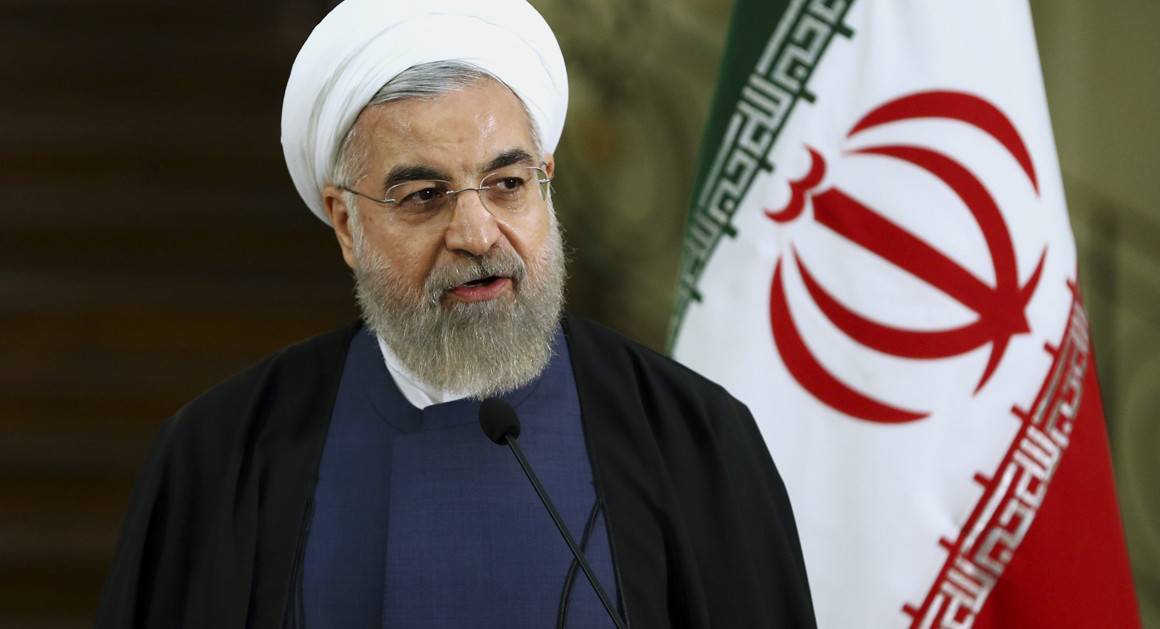Iran's Rouhani Sweeps to Second Term

EghtesadOnline: Hassan Rouhani won a second term as president of Iran, in a landslide victory seen as an endorsement of his efforts to steer the nation out of isolation through its landmark nuclear deal with world powers.
Rouhani secured 57 percent of ballots cast in a first round of voting, Interior Minister Rahmani Fazli said at a news conference in Tehran. Chief rival Ebrahim Raisi, a hardline conservative cleric perceived as the favored candidate of Supreme Leader Ali Khamenei, took 38.5 percent. More than 41 million of 56 million eligible voters cast ballots, according to Bloomberg.
The result strengthens Rouhani’s domestic mandate to integrate Iran with the global economy. Yet the extent of his success will depend on the cooperation of the Iran’s conservative establishment, led by Khamenei, who was widely seen as supporting Raisi during the campaign. It will also depend on actions taken by U.S. President Donald Trump, who arrived on Saturday in Saudi Arabia for talks expected to focus on ways to contain the Islamic Republic’s regional influence.
Rouhani “will aim to influence the trajectory of both domestic and foreign policy towards moderation and greater opening with international powers,” said Ellie Geranmayeh, senior policy fellow at the European Council of Foreign Relations. “His renewed term promises tougher economic reforms inside the country to boost the confidence of foreign companies looking to invest in Iran.”
Rouhani, 68, sealed his victory after an often bitter campaign that laid bare the deep divides in Iranian society. Pre-election polls showed the moderate cleric enjoying widespread backing in urban centers, where Iranians supported his efforts to deliver more social freedoms and trade a pared-back nuclear program for an easing of crippling economic sanctions.
Raisi was popular among the working class and rural poor who rely on state support and benefited less from the 2015 nuclear pact. A Raisi win would have been viewed as swinging Iran back to a hardline conservatism hostile to the West.
Many had seen a tight race as Rouhani, first elected in 2013, brought his mixed record before the Iranian people. The lifting of some sanctions has brought billions of dollars of frozen funds into the country, but while companies have been eager to do business with Iran, fear of running afoul of remaining U.S. sanctions has put a damper on investment.
Monthly inflation has been tamed to less than 8 percent from above 40 percent, and the International Monetary Fund expects Iran’s economy to grow 3.3 percent this year after contracting by 6.8 percent in 2013. Rouhani’s hewed to fiscal prudence, promoted banking reform and engaged with foreign companies in an effort to revitalize an economy isolated from much of the world during a decade of sanctions.
Still, a combination of lower oil prices, reduced state subsidies and the Central Bank of Iran’s tight monetary policy have conspired to keep poorer Iranians from feeling any difference in their standard of living. Unemployment under Rouhani has edged up from 10 percent to 12.7 percent over the past four years, according to official figures.
Rouhani’s record on loosening restrictions on cultural and social activities has also been spotty as he tests how far he can push boundaries zealously guarded by hardline conservatives. While Tehran and other cities have seen a revival in the arts and cafe life, concerts were banned in Mashad, Iran’s second-largest and holiest city, after a prayer leader demanded they stop.
Meanwhile, Iran has become more enmeshed in conflicts throughout the Middle East in a widening confrontation with Saudi Arabia, as the region’s Shiite and Sunni heavyweights vie for influence in Iraq, Syria, Lebanon and Yemen. Rouhani will also continue to find himself facing a tougher Trump, who has pronounced the nuclear pact a “disaster” and imposed new punishments over Iran’s missile program on the eve of balloting.


